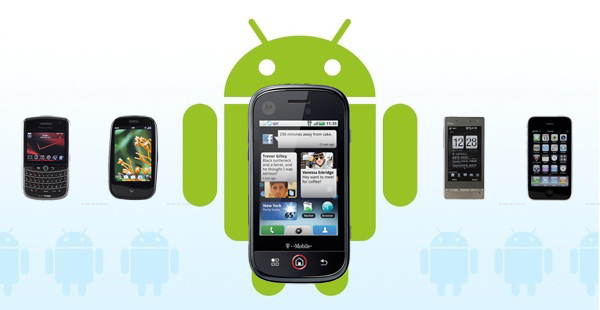Five reasons Google Android smartphones will beat iPhone, BlackBerry, WinMo

The Google Android mobile operating system currently runs on less than 2 percent of the world's smartphones, but research firm Gartner predicts the platform will grow to 14 percent of the global smartphone market in 2012 -- beating Apple's iPhone, Windows Mobile and RIM's BlackBerry platforms.
Computerworld notes that Android will pale only to the Symbian OS, installed mostly on Nokia devices. Nokia is the world's No. 1 phone manufacturer worldwide, and Symbian runs on about half of all smartphones.
Symbian's share will fall to 39 percent by 2012, Gartner predicts.
Here are five reasons why Android will beat iPhone, BlackBerry and Windows Mobile on the global stage, according to Gartner's forecast:
- Google backs Android, a major pipeline for its cloud services.
- Android is improving rapidly. The Cupcake 1.5 release was well-received, and Donut 1.6 has already been sent over the air to handset owners.
- Android is open, making it easier to quickly gain developers' support.
- Android will run on phones from several manufacturers, which will help it quickly spread through the marketplace. HTC, Motorola and Samsung are already supporting handsets.
- Android combines the best of what's out there. It's open, but it offers iPhone-like menus and apps, with Windows Mobile-esque icons, with Palm Pre-like multitasking. There's another arms race afoot -- the battle among Android handset makers as to which company can squeeze the most out of the OS.
As reported by Computerworld, Gartner forecasts the following market share in 2012:
- Symbian: 203 million handsets, 39 percent of the market;
- Google Android: 76 million handsets, 14.5 percent of the market;
- Apple iPhone OS: 71.5 million handsets, 13.7 percent of the market;
- Windows Mobile: 66.8 million handsets, 12.8 percent of the market;
- RIM BlackBerry OS: 65.25 million handsets, 12.5 percent of the market;
- Linux variants: 28 million handsets, 5.4 percent of the market;
- Palm webOS: 11 million handsets, 2.1 percent of the market.
The main takeaway: Android's the biggest gainer of the bunch, at the expense of RIM's BlackBerry OS.
(Remember: these are global figures, not the U.S. market, which is dominated by the iPhone and BlackBerry OSes. Still, they indicate the rapid global growth of the smartphone segment.)
Which will you choose?
